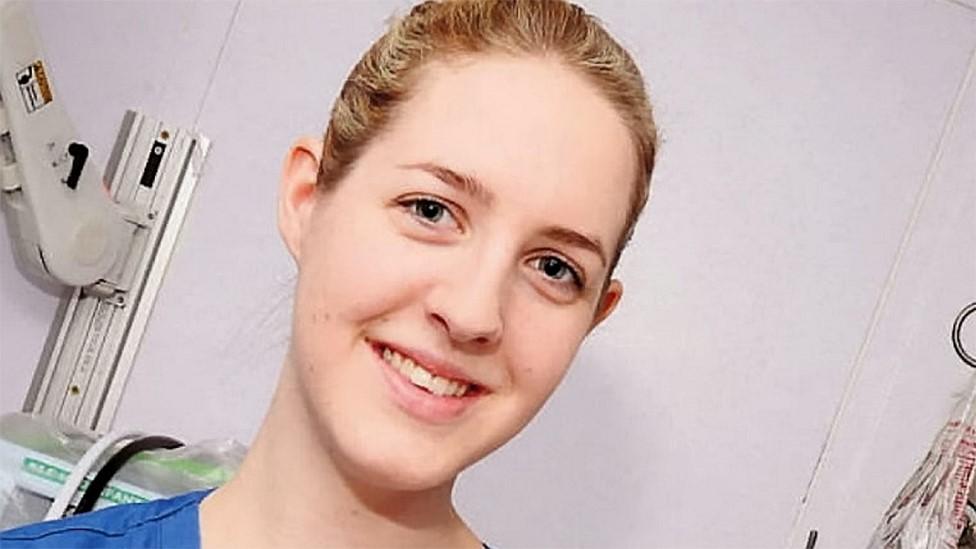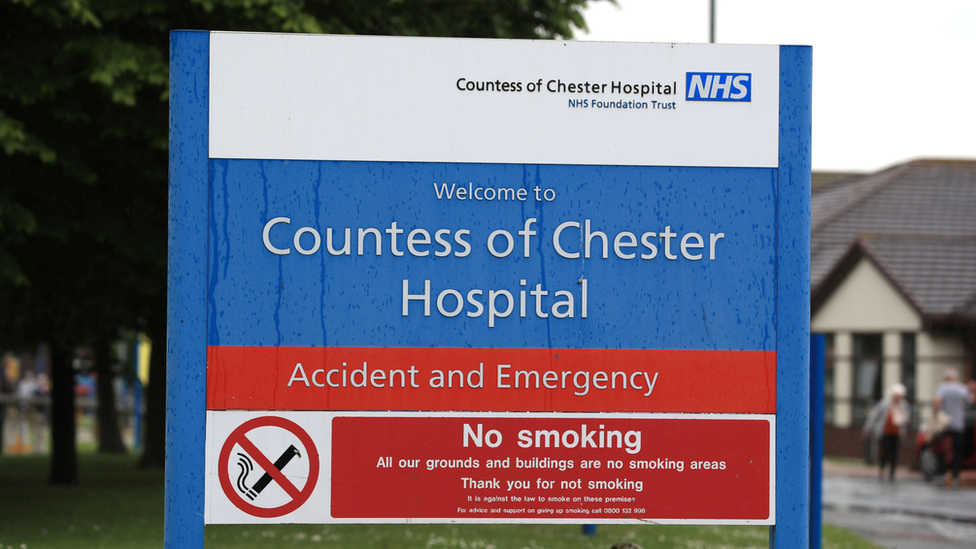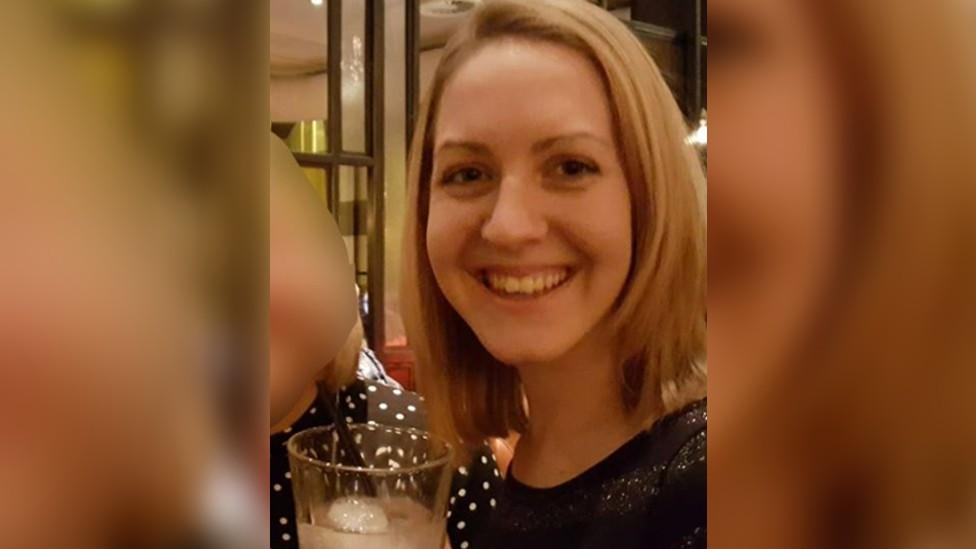Lucy Letby trial: Medical tool may have injured baby, expert says
- Published

Lucy Letby is accused of murdering seven babies and trying to kill 10 others
A baby could have suffered internal bleeding as a result of an "inappropriate" use of a medical tool in the hours before his death, a medical expert has told the trial of nurse Lucy Letby.
Ms Letby, 32, is charged with murdering seven babies and attempting to murder 10 others in 2015 and 2016.
She denies the 22 charges against her.
The nurse is accused of murdering Child E and attempting to murder his twin, Child F, the following day.
The twins had been born prematurely and Ms Letby, originally of Hereford, was the designated nurse caring for both boys, the jury was told.
Doctor Dewi Evans told jurors he believed there had been intentional "interference" with Child E.
Dr Evans, who was approached by the National Crime Agency to review the case in 2017, said the infant suffered a "major" gastric bleed while at the Countess of Chester Hospital in August 2015.
He told the jury that this "trauma" had "no" innocent explanation and suggested it could have been caused by a medical tool called an introducer.
Dr Evans said: "There are number of bits equipment that are relatively rigid.
"There are plastic tubes used for suction, there could have been interference with that.
"Or there's the introducer, a thin wire surrounded by plastic, it's more than sufficient to cause trauma if it was used inappropriately.
"I can't be certain about what caused trauma, but it was some kind of relatively stiff thing, sufficient to cause extraordinary bleeding."
He added: "There is no evidence at all that this was a natural phenomenon, it's not something I have ever seen in my decades in neonatology."

The nurse worked on the neonatal ward at Countess of Chester Hospital
Ben Myers KC, defending, put it to Dr Evans that he was "looking for possible items just to support the allegation, than simply looking at all the available facts".
Dr Evans repeated that he believed Child E was subjected to a trauma that did not result from "some kind of natural phenomenon".
The expert went on to tell the court that a "more significant factor" in Child E's death was the injection of air into his bloodstream.
He said the "very peculiar" patches noted on Child E by medics in the hours before his death were a result of air embolism.
He said: "I have only seen [the patches] in literature presentations, other than in this series of cases.
"Having seen them I thought [Child E] had been subjected to an air embolism."
The decision not to carry out a post-mortem examination on Child E prevented confirmation of whether he sustained a trauma, the jury also has heard.
Medical expert Doctor Sandie Bohin later told the court that it was a "poor" decision.
"I think that was the wrong decision", she added.

Lucy Letby denies the 22 charges against her
The senior paediatric consultant responsible for the decision, who cannot be named for legal reasons, told the court earlier this week that they "now regret" not recommending a post-mortem examination.
Dr Bohin, asked about Child E's gastric bleed, said the infant lost 25% of his blood volume in what she described as a "catastrophic haemorrhage".
She told the court that she had "never" seen such a bleed and was left "clutching at straws" to explain it.
The only explanation she could find was an extremely rare condition called Dieulafoy's lesion, which sees an artery within the stomach wall spontaneously bleeding as a result of inflammation.
A court order bans the reporting of the identities of the children allegedly attacked by Ms Letby, while identifying parents or witnesses connected with the children is also banned.
The trial continues.

Why not follow BBC North West on Facebook, external, Twitter, external and Instagram, external? You can also send story ideas to northwest.newsonline@bbc.co.uk
Related topics
- Published17 November 2022

- Published15 November 2022

- Published14 November 2022

- Published11 November 2022

- Published9 November 2022

- Published4 November 2022

- Published3 November 2022

- Published2 November 2022

- Published28 October 2022

- Published27 October 2022
